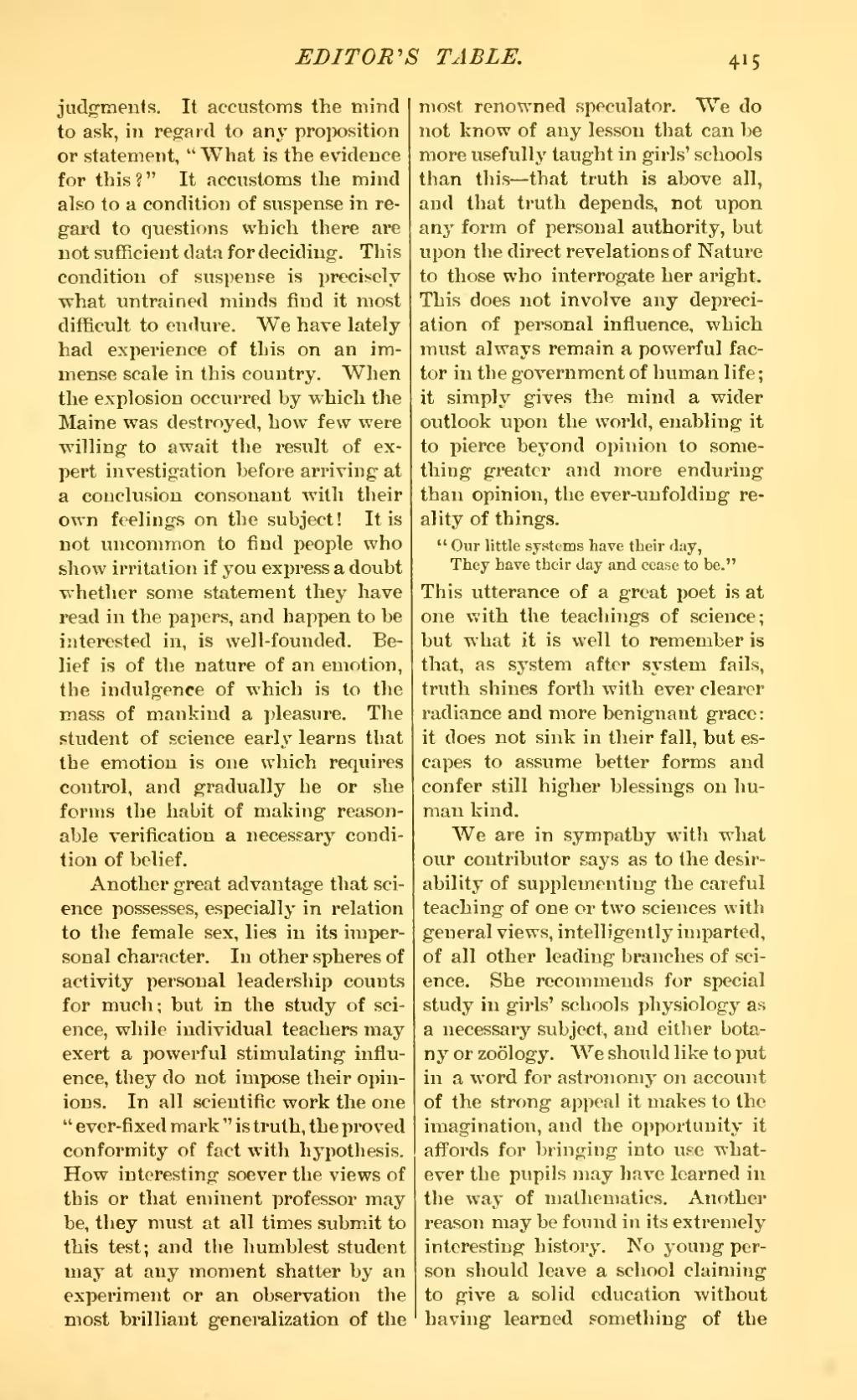judgments. It accustoms the mind to ask, in regard to any proposition or statement, "What is the evidence for this?" It accustoms the mind also to a condition of suspense in regard to questions which there are not sufficient data for deciding. This condition of suspense is precisely what untrained minds find it most difficult to endure. We have lately had experience of this on an immense scale in this country. When the explosion occurred by which the Maine was destroyed, how few were willing to await the result of expert investigation before arriving at a conclusion consonant with their own feelings on the subject! It is not uncommon to find people who show irritation if you express a doubt whether some statement they have read in the papers, and happen to be interested in, is well-founded. Belief is of the nature of an emotion, the indulgence of which is to the mass of mankind a pleasure. The student of science early learns that the emotion is one which requires control, and gradually he or she forms the habit of making reasonable verification a necessary condition of belief.
Another great advantage that science possesses, especially in relation to the female sex, lies in its impersonal character. In other spheres of activity personal leadership counts for much; but in the study of science, while individual teachers may exert a powerful stimulating influence, they do not impose their opinions. In all scientific work the one "ever-fixed mark" is truth, the proved conformity of fact with hypothesis. How interesting soever the views of this or that eminent professor may be, they must at all times submit to this test; and the humblest student may at any moment shatter by an experiment or an observation the most brilliant generalization of the most renowned speculator. We do not know of any lesson that can be more usefully taught in girls' schools than this—that truth is above all, and that truth depends, not upon any form of personal authority, but upon the direct revelations of Nature to those who interrogate her aright. This does not involve any depreciation of personal influence, which must always remain a powerful factor in the government of human life; it simply gives the mind a wider outlook upon the world, enabling it to pierce beyond opinion to something greater and more enduring than opinion, the ever-unfolding reality of things.
"Our little systems have their day.
They have their day and cease to be."
This utterance of a great poet is at one with the teachings of science; but what it is well to remember is that, as system after system fails, truth shines forth with ever clearer radiance and more benignant grace: it does not sink in their fall, but escapes to assume better forms and confer still higher blessings on human kind.
We are in sympathy with what our contributor says as to the desirability of supplementing the careful teaching of one or two sciences with general views, intelligently imparted, of all other leading branches of science. She recommends for special study in girls' schools physiology as a necessary subject, and either botany or zoölogy. We should like to put in a word for astronomy on account of the strong appeal it makes to the imagination, and the opportunity it affords for bringing into use whatever the pupils may have learned in the way of mathematics. Another reason may be found in its extremely interesting history. No young person should leave a school claiming to give a solid education without having learned something of the

